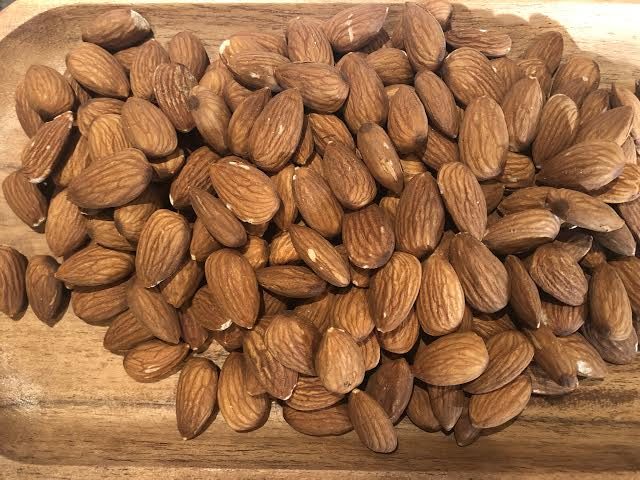
Blaming Almonds for California’s Water Shortage is Just Nuts
Water shortages, lack of groundwater recharge, contaminated drinking water, and subsidence are all man made in California
By Katy Grimes, June 21, 2021 8:11 am
“California can learn much from Israel on how to conserve water, manage drought better,” an op ed in Sunday’s Sacramento Bee said. At first blush, yes, California can learn a great deal about water management from the Israelis. They turned a desert into lush, productive agricultural lands. Israeli’s invented drip irrigation technology in the 1960’s, and have perfected desalination, water recycling, reclamation, wastewater reuse.
The op ed by Ron Hassner, who teaches international conflict and religion at U.C. Berkeley, notes this as well: “Countries facing far harsher climates and much scarcer water supply, like Israel, have adopted straightforward policies to avoid such crises. We should learn from their example.”
“Having grown up in Israel, I smile wryly whenever I drive across the Sacramento River and think of California’s alleged ‘water shortage,'” Hassner said. “Israel’s only river, the Jordan River, is a small stream that flows at a rate of 565 cubic foot per second. The Sacramento River, in contrast, pours 489,000 cubic feet of water into the Bay every second, nearly 1,000 times the amount of water for half as many people. There are dozens of other large rivers in Northern California alone.”
Hassner is right about California’s abundance of water. But rather than address water storage, he goes after California’s agricultural community: “California farming policy bears prime responsibility for our water shortage,” he said. “California agriculture uses up four times as much water as urban users.”
The most glaring omission in Hassner’s op ed is where the state’s water is really going – the state has been letting water out of reservoirs across California for months now. And it’s not going to farmers, growers, ranchers or urban use. Environmental policy says the water “flows” from reservoirs are necessary to produce a rebound of endangered Delta smelt and Chinook salmon. However, these policies are a failure as neither species have been collected in all of the latest trawling surveys, where they spend several days a month searching in more than 200 spots. This practice of releasing water and hoping fish improve, has been unsuccessful for nearly 30 years, according to California water expert Kristi Diener. Both species are close to extinction.
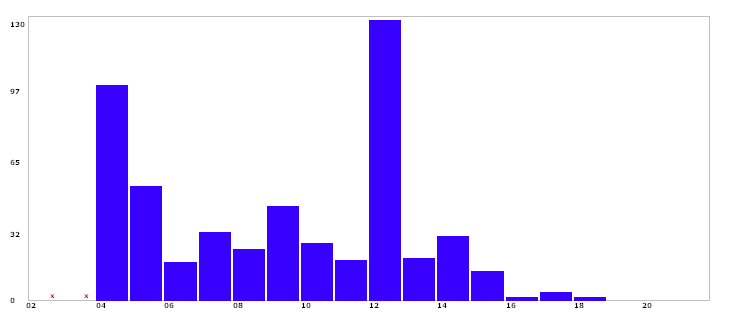
People forget the winter of 2019 brought 200 percent of average rains and snow pack. Yet the state still held back on water to farmers, and residents are facing rationing, the Globe reported May 2019.
Hassner omitted that the State of California directs about 50 percent of its developed water supply for the environment, including wild river flows, managed wetlands and wildlife preserves, habitat and water quality control for fish, and required Delta outflows, according to the Department of Water Resource. Water is diverted in times of drought and times of plenty to the Sacramento-San Joaquin Delta, leaving much less for irrigation or for Californians to drink.
Legislation passed in 2017 and signed into law by then-Gov. Jerry Brown orders that residents will be limited to 55 gallons per day by 2030, and 50 gallons by 2050.
This is happening at the hands of man, not climate change. Water shortages, lack of groundwater recharge, contaminated drinking water, and subsidence are all man made in California.
Water flowing to the ocean is now being drained from New Melones, as Shasta, Oroville, and Folsom Dams are already tapped out. This is an unprecedented release of water stored in New Melones that has alarmed Oakdale and South San Joaquin Water Districts, Diener reported. She explained:
“Lake Oroville has been drained so low that it is predicted it will not be able to generate any hydro-power at all by August or September. The clean energy Oroville’s Hyatt Power Station produces is enough to fully power 800,000 homes. That power will have to come from other sources if possible, or there will be an increase in outages. Oroville is the largest reservoir of the State Water Project, and has the tallest dam in the U.S. It was filled to capacity in 2017, and again less than two years ago in 2019, but has been emptied to meet radical environmental requirements that are supposedly going to bring back hundreds of thousands of delta smelt and Coho Salmon. Both fish are nearly extinct since the multitude of fish protection laws began piling up on the books nearly 30 years ago. It is rare for either species to even be collected in trawling surveys, with just four smelt found since July of 2018. A smelt’s lifespan is generally about a year.”
Hassner said, “Nuts are the most notorious culprit. California produces 80% of the world’s almonds — 2 billion pounds a year — at a staggering cost of 2,000 gallons of water per pound of almonds. Ten percent of California’s water is guzzled up by almonds. That alone equals the volume of water used by all of California’s cities combined.”
His conclusion? “It’s preposterous to expect individual households to take the lead in conserving water rather than revise our state’s industrial and farming policies. In the midst of successive droughts, California is exporting its water overseas in the form of produce,” Hassner said. The solution to our water crisis cannot be shorter showers. A fistful of California almonds, shipped to Europe or Asia, uses up more water than the average shower.”
According to the California Almond Board, “Almonds make up less than 13 percent of the state’s total irrigated farmland but use only 9 percent of the state’s ag water – less than their proportionate share.” They also note:
- California produces 99% of the nation’s almonds, artichokes, dates, figs, raisins, kiwifruit, olives, cling peaches, pistachios, dried plums, pomegranates, sweet rice, and walnuts.
- California’s top ten acreage crops include hay, almonds, grapes, wheat, corn, rice, walnuts, cotton, processing tomatoes, and pistachios. California’s fruits and nuts use 34% of the state’s ag water and account for 45% of its revenue.
- Through Almond Board research programs, almond farmers have been funding water efficiency research since 1982 with over 90 projects funded to date.
- Over the past 20 years, almond growers have improved their water use efficiency by 33%, producing more crop per drop.
- Almonds thrive in Mediterranean climates like California. Unlike other crops, there aren’t many places where almonds can be grown worldwide.
Does it matter to Hassner that California is home to 7,600 almond farms and 102 almond processors, 90% of which are multi-generational family farms?
Hassner says “if we refuse to recycle water, store more water or divert it away from irresponsible agriculture, we have to invest in desalination.”
“Irresponsible agriculture?”
And what about the pot industry? One could argue that growing marijuana is irresponsible agriculture as the state’s food production is deliberately threatened by political appointees. “With marijuana now legal to grow and use, no one is addressing the vast amounts of water used in pot growth and production,” NBC reported in 2014. “The average marijuana plant needs about 6 gallons of water a day, depending on its size and whether it’s grown inside or outside, according to a local report that cited research.”
Have California officials decided we need pot more than food? “Streams in Northern California’s prime marijuana-growing watersheds likely will be sucked dry this year if pot cultivation isn’t curtailed, experts say,” the Daily Kos reported in 2014, citing the same research. “’Essentially, marijuana can consume all the water. Every bit of it,’ said state Fish and Wildlife Senior Environmental Scientist Scott Bauer, who specializes in salmon recovery and is working on a study of the issue.”
“It’s preposterous to expect individual households to take the lead in conserving water rather than revise our state’s industrial and farming policies,” Hassner erroneously concludes. “In the midst of successive droughts, California is exporting its water overseas in the form of produce. The solution to our water crisis cannot be shorter showers. A fistful of California almonds, shipped to Europe or Asia, uses up more water than the average shower.”
Families and urban water users did not waste their way into a water shortage and cannot conserve their way out. “Saving 25% of a 10% urban use equals 2.5%, Diener points out. “Ongoing water releases continue to put fish over people, and both are suffering. More water rights holders than ever before are about to receive stop-using-water notices.”
- Sen. Niello’s SB 84 Would Help Repair California’s Judicial Hellhole Status - February 11, 2026
- New January Jobs Report Blew Away Expectations - February 11, 2026
- Sen. Weiner’s Bill is Turning Every Neighborhood in California into a Dangerous Political Experiment - February 11, 2026



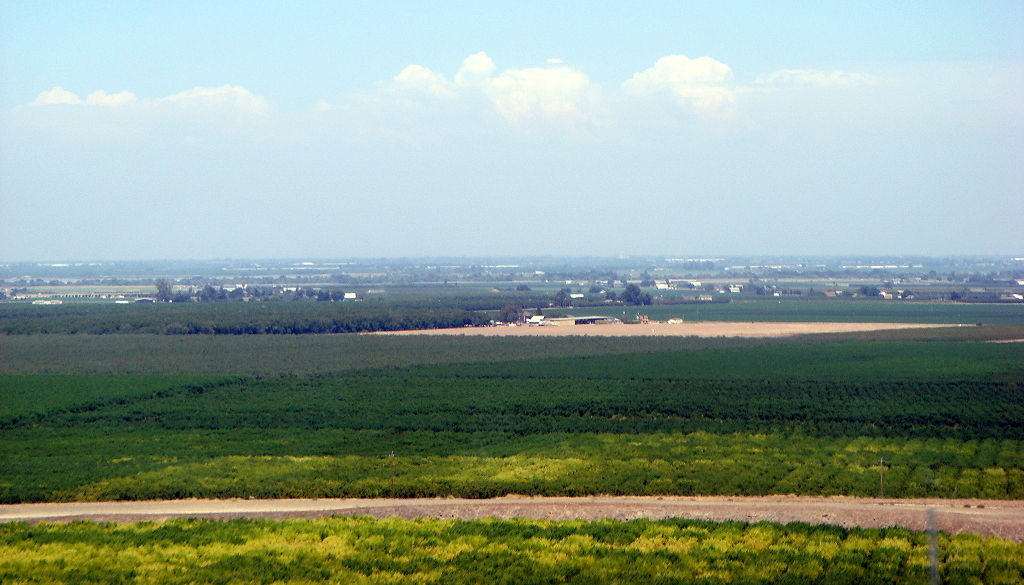
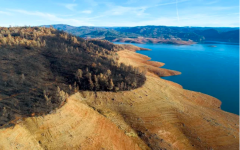
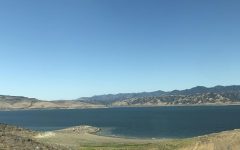
No, blaming almond growers is appropriate. It requires 1900 gallons of water to grow one pound of almonds! It only requires 11 gallons to grow a pound of nectarines. And farmers use 80% of California’s water, even though they are only 2% of our economy. That is criminally wasteful.
As we explain in this article and many recent articles, 50% of California’s water is used for environmental purposes in the form of “flows” from reservoirs “to produce a rebound of endangered Delta smelt and Chinook salmon.” The remaining 50% is shared between urban water users (10%) and agriculture (40%).
Here is proof on the State Dept. Water Resources website of the reservoir water outflows as of June 18th:
https://water.ca.gov/-/media/DWR-Website/Web-Pages/Programs/State-Water-Project/Operations-And-Maintenance/Files/Operations-Control-Office/Delta-Status-And-Operations/Delta-Operations-Daily-Summary.pdf?la=en&hash=C8CB25C90D71814C9FAB83ACA9603E0AD41F4CA4
As for your assertion that 1900 gallons of water is needed to produce one pound of almonds, whereas it takes 11 gallons to grow a pound of nectarines – you are comparing apples and oranges – almonds are a nut which provides protein. Nectarines are a fruit – no protein. Almonds make up less than 13 percent of the state’s total irrigated farmland but use only 9 percent of the state’s ag water – less than their proportionate share. Alfalfa and rice use significantly more water, but aren’t under attack. Why?
Not necessarily agreeing with OP, but not I’m understanding how you can include a quote of “10% of California’s water is guzzled up by almonds” but also include that almonds make up less than 9% of the states ag water. There is clearly a disconnect in the data there, with either side just repeating these conflicting claims. Also it seems really odd to use “13% of irrigated land usage” as metric for what constitutes their share of the water, all that means is that almonds have to be planted more spread out than other crops, a better metric might be lbs of food, or revenue dollars per gallon.
I find it to be interesting that the two types of fish that you comment on are endangered Chinook and Smelt. You fail to point out that fresh, flowing water into the ocean is what triggers steelhead runs, Coho, Pink and Chum, and further that each run of these fish equates to a 3 year life cycle. If we loose a year of water flow during a spawn season, we lose a full run of these fish in 3 years time. Cutting our natural water flow into the pacific is pretending is devastating to our fisheries.
Perhaps the message needs to be revised; corporate agriculture is leading California into disastrous, long term drought by using our water to generate huge profits for foods that are shipped to the very countries that we blame for our own problems; China and Russia.
Both of your statements are correct. In wet years, 50% of the water flow is reserved for the environment, of the 50% that goes out for human use, 80% of it is used for agriculture and 20% for drinking water/showers/whatever else we need in our homes. Think of it this way:
There are 100 gallons.
50 gallons goes to the environment.
40 gallons goes to agriculture.
10 gallons goes to household use.
Even with your misleading (or misguided?) article, Katy, I trust you can do this math.
But let’s talk about how you think it is only for 2 fish . . . huh? The entire ecosystem counts on that river flow. It supports all of the river live AND the estuary (the region where the fresh- and saltwater mixes) life. Even if you’re only thinking about it from economic terms, the rivers and estuary are the basis of a lot of livelihoods and feed a whole lot more people than almonds do.
Being a hydrologist, this is the kind on misinformation that angers me. The MAXIMUM flow of Sacramento River is 489,000 cfs. The MEAN flow is about 28,000 cfs. (The source is the US Geological Survey.) The author is off by a factor of 17! This is irresponsible journalism; it makes me wonder how many other gross errors are in the article.
Most of your pro-almond arguments are off point.
True or false #1: all other factors remaining unchanged, if almond farms were eliminated, would that significantly improve drought and water supply woes in CA?
True or false #2: is there any other “fell swoop” type action that would have a more positive impact on CA’s drought and water supply woes than eliminating almond farms?
I think we both know the answers: YES and NO.
Almond growers can do better – they seem entitled to be inefficient – and your generational farm argument seems to bolster that. My family has been here since before there were any almond farms… So what? Doesn’t buy me anything – we’re all in this together. I suggest almond farmers on their own figure out how to farm with WAY less water – because the anti-almond voices are going to get angrier and louder every year.
Almonds are a cash crop.
Fish are not.
This is a pretty simple concept. One deserves water for people to eat them to not die. The other wants water so that we can line the pockets of people who have more money than they could ever spend.
If you want to drive food to extinction for profit, then don’t bet upset when the people who go starving thanks to you decide to eat you instead.
That is, assuming you all don’t die in a wildfire caused by your profiteering in the first place.
Your article doesn’t even attempt to revoke arguments against California’s rampant cash crop crisis. Instead, you use fallacies and deceitful language to sway readers without any actual empirical data to back up your claims, besides irrelevant comparisons between the space needed to grow almonds and the amount of water they use (which completely ignores how much actual FOOD is produced per gallon of water mind you, the metric that ACTUALLY MATTERS).
For example –
““It’s preposterous to expect individual households to take the lead in conserving water rather than revise our state’s industrial and farming policies,” Hassner erroneously concludes. ”
You don’t do anything to refute this statement. You don’t even make an attempt to. You simply state that he is “erroneous” in his conclusion, assuming that gullible readers will take your statement as fact and not notice that it’s completely unfounded argumentum ad lapidem.
Then stop eating then, imbecile.
He’s on the KoolAid diet. He be drinking too much KoolAid, ya know.
Agree 500%
The direct sale of agriculture products account for 2% of the state’s GDP. Agricultural support industries and agriculture related services and products account for far more GDP of the state than that. The 2% GDP number is only concerning dollars from the direct sale of agriculture products. The entire central portion of CA relies on agriculture as the main source of economic activity by far. If AG goes away in CA the state is in big trouble. It is hard to get an exact number of the total value of all agriculture and AG related products and services, but it adds up to somewhere around 20% to 25% of the states total GDP. People intentionally use the 2% number without context as to how much ALL AG and Ag related services as a whole add to the total GDP of CA.
Growing food isn’t criminal. What the state and the controlling party and their cohorts are doing, using water as a weapon, for power and manipulation and as a means of monetary gain is criminal. Allowing the over $7 billion water bond and the $2.7 billion earmarked within for new and expanded storage to go virtually unused for nearly a decade while continuing to allow most of the state’s water to flow back out into the ocean is criminal.
So you think God had it all wrong when He created our watersheds? Is it “criminal” to allow fresh water to go to the ocean, where it brings nutrients that feeds our oceans fisheries, and where our own salmon and steelhead fisheries are dependent on strong, clean water flows?
Katy was probably at a nice dinner party with the Blue Diamond folks…and agreed to “write something up” haha. This whole post is basically propaganda.
“Through Almond Board research programs, almond farmers have been funding water efficiency research since 1982 with over 90 projects funded to date.” — Funding PR like this article and NPR sponsorships intended to confuse consumers? OOPS.
The almonds are mostly shipped to China. While the ground water we use in homes (that have been around 50+ years) is being sucked dry by the monster pumps that feed China’s almonds, we are told to conserve water! Nobody asked us what we thought about this misuse of ground water before, during or as our wells run dry.
Agriculture has long been the scapegoat in the state’s water issues, apparently to hide state leadership’s failing water policy and shameful, near-criminal, lack of responsibility in providing water infrastructure for industrial and residential use. Voters have repeatedly made themselves clear on the issue of building new infrastructure and have been ignored for years if not decades. Fingers pointed accusingly at almond growers, who are not the problem, are never going to solve our water problem, which remains the responsibility of our feckless state leadership. That is one of the reasons California needs new state leadership.
The way I see it, there are variable factors in all this and wouldn’t it be prudent just to reduce the use of all of the most water wasters? Sure Almonds produce the most economic value but it’s has gotten to the point where they’re also draining the groundwater dry during seasons with no rain and it takes decades to refill these reserves. Cut some of the flows, reduce some of the almond, walnut, pistachio growth/water consumption and voila, problem mitigated with less damage to just one section of the agriculture. That and keeping people from just wasting water once we get more water back so there is some balance going on here.
https://www.sciencedirect.com/science/article/pii/S1470160X17308592
https://www.vox.com/2015/4/14/8407155/almonds-california-drought-water
The Bay Area was just placed under a water shortage emergency with mandatory restrictions. Except, here’s the thing, there isn’t — even with the drought — really a shortage problem. It’s more a, ‘where the water is going’ problem. California agriculture accounts for 80% of our water use, even though California agriculture is less than 2% of our economy – Bill Maher (although not sure where he got those % points)
https://www.rawstory.com/bill-maher-california-drought/
Rawr, Maher is saying that California’s agriculture production is less than 2% of the USA economy (GDP), I would assume based on this from USDA: https://www.ers.usda.gov/data-products/chart-gallery/gallery/chart-detail/?chartId=58270
P.S. So if the entire USA agricultural output is 4% of GDP, then California would contribute HALF of that output. Seems like a LOT to me, no?
Food is 100% of human diets. You cannot measure the value of agriculture by percentages of the economy.
Plants are like people. They get thirsty too: https://www.bloomberg.com/opinion/articles/2015-05-26/why-they-grow-thirsty-alfalfa-in-parched-california
Instead of acknowledging that progressive policies have led to the water crisis they now are pushing the narrative that almond farmers are to blame pitting grower against grower. Unbelievable! NECTARINES VS ALMONDS….
Please fellow readers, do not buy the new narrative that the water shortage is to be blamed on farmers.
I am a native Californian. Our state has grown in population and we need more water storage.
Katy and crew have done a magnificent job documenting our water woes.
This state needs to stop spilling billions of gallons into the Pacific Ocean! Is it possible for any in charge to be honest about the solutions and how this came about?!
Bravo Fed up Cali Girl! You got it right. These whacko policies are the problem. Shut the dang border and stop the thousands of people coming into California. Stop attacking our farmers. This is all man-made.
Cbeck California’s population growth. California looses 100’s of thousands of its inhabitants every year. Population is shrinking not growing
Check California’s population growth. California looses 100’s of thousands of its inhabitants every year. Population is shrinking not growing
I would bet that the same people complaining about the water use for growing almonds are the type of people who drink almond milk and complain about dairies..!!
Left hand not knowing what the right hand is doing. Time to start banning almond milk around the country then, right..???
Leftists always need a target to focus their hate on. Almonds are the white people of agriculture.
Oddly enough – people point fingers at the EEEVIL “almond growers” but somehow the pistachio groves owned by two MAJOR Democratic contributors escape similar scrutiny…
(More information on the private owners of Wonderful Pistachios & the rest of their agricultural empire is at https://www.wonderful.com/who-we-are/ ) but they DID get mentioned on this article for support of Newsom in the upcoming RECALL election :
https://www.counterpunch.org/2021/03/26/big-ag-billionaires-donate-250000-to-newsoms-campaign-against-recall/
Time to start voting with your WALLET ???…. They’re enriching themselves while financially supporting state-sponsored economic-terrorism, essentially…
Correct me if I am wrong, I had forgotten about it myself, I read yesterday that in 2014 we voted for a bond for money to fix this problem, to build new reservoir(s). Not a single peep has said about a new reservoir since. I know it would take time to plan and build reservoirs, but nothing has been done. Where has that money gone? Were we really that big of saps that they tricked the money out of us to use on something that’s not related to our water crisis?
It’s even worse than that, Bill.
“…Since year 2000, voters have approved eight water bonds totaling more than $30 billion, according the the Legislative Analyst’s Office.”
“Ignoring $30 Billion from Water Bonds and State Surplus Governor Gavin Newsom Wants New Water Tax” – Katy Grimes, March 2019:
https://californiaglobe.com/legislature/ignoring-30m-from-water-bonds-and-state-surplus-gov-gavin-newsom-wants-new-water-tax/
Just for the record. I use 3.5 acre feet of water to grow 2,000 pounds of almonds. at 125,851 gallons per acre foot that is 440, 479 gallons per acre or 220.24 gallons of water per pound of almonds.
Your morning cup of coffee requires 37 gallons of water to produce.
Thank You Dan for sharing such important information.
I appreciate the hard work and commitment you have in the farming industry.
We need to speak up for our farmers!
Dan, please check your math.
Just for the record, 1 acre measures 43,560 square feet. 1 cubic foot of water equals 7.48 gallons of water. 1 acre-foot of water is 326,000 gallons . 3.5 acre-feet of water 1,141000 gallons. If your yield is 2000 pounds of almonds, then the water use is 570 gallons per pound. That’s more than 15 cups of coffee.
I’d rather grow food than cities.
I have an almond story. In my backyard in Fresno an almond tree sprouted from squirrel activity. It was at the top of a hill with no irrigation. It survived the worst drought on record and it produced almonds. Proof of concept that almond trees don’t need a lot of water to survive, thus drought resistant and ideal for Californias precipitation patterns. More people need to share their knowledge from firsthand experience to help sort reality from bizarre government data which was likely politically motivated.
This is my favorite story of the day. Thanks Rob.
Rob, I think that the scale of Dan’s operations and his water needs, dwarfs the needs of the squirrel-activity tree in your backyard. Not a valid comparison.
This is just another part of the Climate Change agenda. They want to tax; air, water and the way we think. Oh, Cow Farts!!! ????
The answer to the water shortage is simple. All we have to do is pass another $30 billion in water saving & drought bonds.
It’s the alfalfa and hay export’s to China and the middle east. There’s plenty of pictures of flooded almond orchards next to homes without water. Why do the farms have water. But not there labor?
Katy Grimes was paid by the almond industry to write this article. If that’s not in bed with nuts, I don’t know what is. Shame on you katy. Career is over.
You can’t use data from the California Almond Board to support your stupid claims. They clearly have conflict of interest and lobby for Almond farmers.
Almonds use around 370 gallons of water per pound, I’m not sure why the numbers keep getting more and more exaggerated every year. Meat and dairy take over 4 times as much water per pound to produce in CA yet we never hear any complaints about that. 1 million acres of alfalfa in CA that goes to feeding cows uses more water than all the almonds combined. Are you all vegans or just hypocrites? Stop blaming tree nuts about water shortages while scarfing down cheeseburgers and milkshakes. Almonds should be the pride and joy of CA since they only grow here and are one of the healthiest foods we can eat. It’s clearly targeted propaganda to hurt the industry using misinformation and bad data.
San Francisco has been wasting millions of gallons of hetch hetchy drinking water a year by sending city tanker trucks to spray it on the streets for symbolic reasons. The state gave SF a pass to continue in the last drought and the bad example continues through this drought. Some trucks are labeled “recycled water” yet still refill at the small Hetch Hetchy hydrants. We’re supposed to be so pro planet here but no one will stop this waste of water.
Someone who goes looking for mistaken information will find it: “The average marijuana plant needs about 6 gallons of water a day….”
Good grief! I have a [legal] 10′ high and 6′ wide cannabis plant in my garden that I give three gallons of water per week. Since it is under a roof, it gets no water from rain, which does not fall here in the summer, anyway.
Let’s call out the hypocrites in the govt who line there pockets with kickbacks from the POM wonderful lady who also expands her almond orchards by 200 thousand acres a year while the rest of us have to make up the difference. Generational farming?? Give me a break. Grow something else. Almonds never grew here before we planted them and soaked the soil with water that wasnt there to begin with. Its asinine to blame the left or the right when the problem is crony capitalism and illegal money in politics. We need someone who will do the right thing for the people, the environment and not themselves.
almonds are 13% of land area and only 9% of water usage is an invalid argument. weight production of almonds per acre compared to many fruits is non comparable. 1 acre of almond trees produce 2000lbs of almonds. 1 acre of land can produve 42,000 pounds of strawberries, 25,400 pounds of potatoes, or 11,000 pounds of iceberg lettuce.
I get this impression that if the cities adopt water habits and technology like the Space Station, it won’t be long until farmers are bickering with each other over water – and STILL blame the cities. Because of ag hogging up so much water everyone in North America has to suffer with weak flushing toilets that clog if you look at it wrong. Just so people out west just don’t drive east to get a working toilet, the 1992 Energy Policy Act had the “weak flush law” provision had the 1.6 gallon limit per flush.
This caused people to smuggle toilets from Canada until they made a weak flush law. Just so almonds can be shipped (80% of them!) to countries that hate us like Saudi Arabia, China, and UAE. It may make dollars but not any sense. Even more egregious are almond growers who use the Old Egyptian method of flood irrigation. Note to these almond growers. I live next to this nice big fat juicy body of salt-free water and y’all can’t have any.